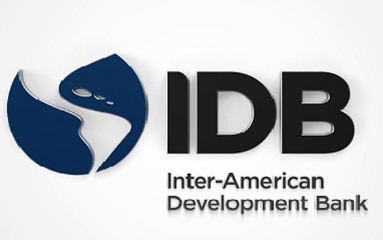Switzerland's involvement in the IDB
Switzerland holds shares in the IDB and is part of the voting group that includes Belgium, China, Germany, Israel, Italy and the Netherlands. As a member country, it plays an active role in the Board of Director’s decision-making, thereby carrying out its supervisory duty as a shareholder. Switzerland works to ensure that the IDB's development projects are sustainable and of high quality, and attaches importance to making sure that the bank's financial footing is solid.
In addition to serving on the Board of Directors and cooperating with the IDB at institutional level, Switzerland and the IDB also work together operationally. Switzerland focuses on the following goals in particular:
- Supporting economic and social development by strengthening the private sector (SDG 8, 9), e.g., by engaging in one of the IDB's vocational education initiatives
- Supporting regional initiatives, e.g., in the area of migration or in the protection of ecosystems in the Amazon basin (SDG 8, 12, 13, 14)
- Assisting the IDB Group's efforts to reduce poverty, with a particular emphasis on inequality, fragility and gender issues (SDG 1, 5, 10).
Switzerland's International Cooperation Strategy 2020–24 foresees phasing out intergovernmental (bilateral) cooperation in the LAC region in order to refocus the SDC's financial resources on promoting work in other parts of the world where the need for development efforts is greater.
This makes multilateral cooperation with development banks such as the IDB or the World Bank all the more important. These banks supplement development programmes implemented by donor countries, NGOs or other multilateral organisations or programmes. The latter include, in particular, UN funds and programmes.
In the wake of the COVID-19 crisis, greater efforts are needed in the LAC region to reduce inequalities, enable social and economic development benefitting disadvantaged communities, and support the private sector. The pressing problems of climate change compel all stakeholders to make comprehensive efforts to enable climate-resilient development (SDG 13).


